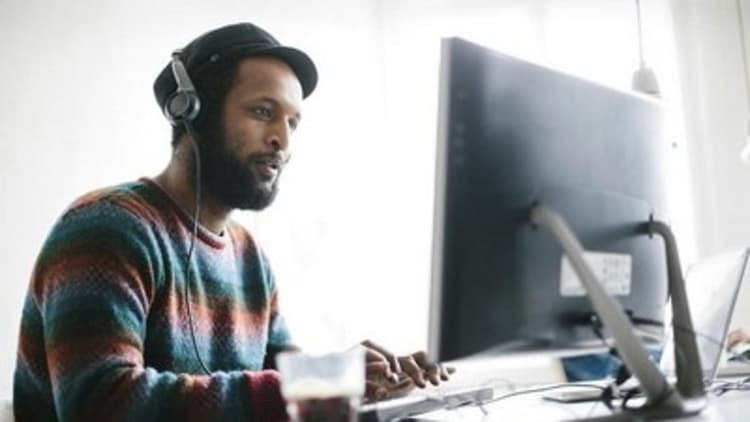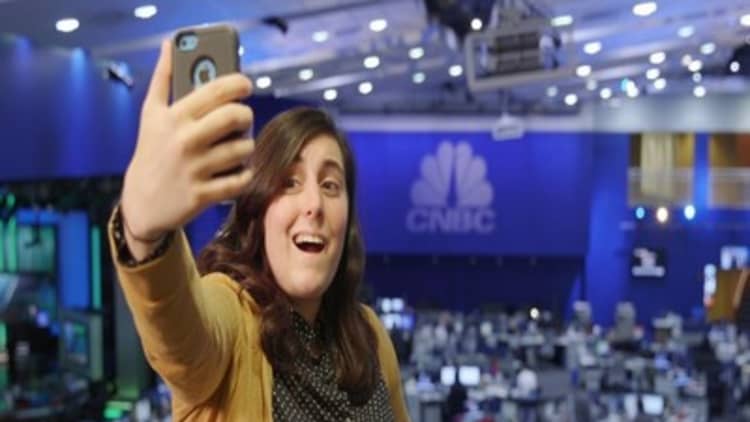


This year, millennials will reach a major milestone, surpassing baby boomers and Gen Xers to become the largest generation in the American workforce, according to a Pew Research Center analysis of U.S. Census data.
Adults ages 18 to 34 now make up 1 in 3 American workers, Pew reports. And that number is only expected to grow as more millennials graduate from college and enter the workforce.
What could that mean for the workplace? We asked millennials and workplace experts to weigh in.
More flexible work schedules
"For millennials, flexibility is so important," said Lindsey Pollak, The Hartford's millennial workplace expert and author of the bestseller "Becoming the Boss."
In The Hartford's 2014 Millennial Leadership Survey, conducted in coordination with Pollak, work-life balance stood as one of the top issues of importance to millennial workers. But Pollak said: "It's integration more than work-life balance. ... It's that understanding that work can take place anywhere."
Read MoreWill millennials be worse off than their parents?
Now that technology has made it so easy to work wherever you are, Kathryn Minshew, CEO and founder of millennial career site The Muse, said the lines between work and life blur. "A lot of people now are [always] connected, they're checking email after hours," she said. "If companies are going to ask that much of people, they have a responsibility to give more as well. I think that means giving people the opportunity to have a flexible work day."
At The Muse, Minshew said, "We have different arrangements for different people based on how they work best and what they need to really enjoy and excel at what they do." One employee, for example, works from home once a week.
As employees are expected to work longer hours, such arrangements can become increasingly important in attracting and retaining the best candidates, said Dan Schawbel, founder of WorkplaceTrends.com and managing partner of Millennial Branding, a Gen Y research and consulting firm.
A renewed focus on growth and development
Millennials have gotten a bad rap as being lazy and entitled, but Pollak argues that is not what they expect in the work environment. Millennials want to know that work is a place of growth and development, where they can "find their purpose and be passionate about what [they] do."
Read MoreWhy do millennials get such a bad rap at work?
It's the role of the CEO and other executives to foster that type environment for employees said Minshew. How?
When asked in The Hartford study how an employer could demonstrate it was invested in helping them advance at the company, more millennial respondents chose training and development, feedback and coaching over cash incentives.
Flatter organizations
While older generations may be wary of younger millennials becoming the majority in the workplace, Pollak, a Gen Xer, assures that "millennials admire and want to work with other generations."
Maybe more closely than boomers and Gen Xers imagine.
Accessibility and open communication are inherent to a generation accustomed to emailing professors and tweeting directly at corporations and celebrities alike. That ethos is embodied by millennial executives like Minshew, who sits in an open room with her employees an arm's length away.
Many of their boomer parents, however, rose up in workplaces that were filled with cubicles and closed-door offices—places with distinct hierarchies and procedures. As millennials rise up the ranks that's likely to change.
"We are in a time of transition from command and control to whatever is going to be the millennial style, and I don't think anyone really knows what exactly that will be yet," said Pollak. "I think what will happen is a meeting in the middle."


